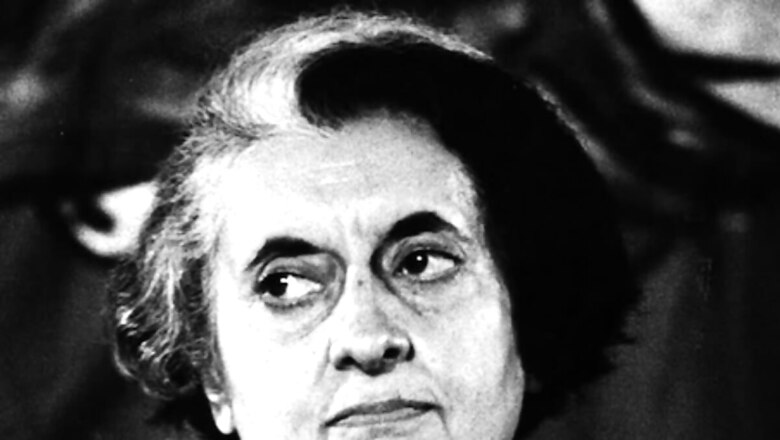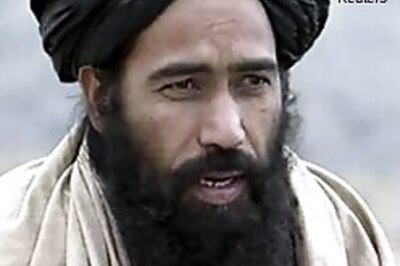
views
American historian Granville Austin, in his magnum opus Working of a Democratic Constitution – one of the finest books that dwell into the vicissitudes of the national emergency – quotes an obituary published by the Bombay edition of the Times of India a few days after the emergency was imposed on June 25, 1975, by the Indira Gandhi-led government. It read: “D.E.M O’Cracy, beloved husband of T Ruth, loving father of L.I.Bertie, brother of Faith, Hope, and Justice, expired on June 26.”
This obituary remains the grimmest reminder of how the imposition of emergency led to the subversion of all democratic values. Marked as the darkest hour of Indian democracy, it led to a crackdown on the opposition, censorship of media and subversion of all democratic institutions of India. It had a wide-reaching effect on different aspects of polity, especially centre-state relations, and the fundamental rights of citizens.
Here is an analysis of the various aspects of the national emergency under Article 352 of the Constitution:
Constitutional provision
Article 352 of the Indian Constitution states: “If the President is satisfied that a grave emergency exists whereby the security of India or of any part of the territory thereof is threatened, whether by war or external aggression or armed rebellion, he may, by Proclamation, made a declaration to that effect in respect of the whole of India or of such part of the territory thereof as may be specified in the Proclamation.”
It is important to note two points here:
- An emergency can be imposed even before the actual occurrence of war or external aggression or armed rebellion, if the President is satisfied that there is an imminent danger
- The phrase ‘armed rebellion’ was inserted by the 44th Amendment Act of 1978, replacing the original phrase ‘internal disturbance’. The change has made the ground of imposition of national emergency more clear and precise.
Imposed in 1962, 1971, 1975
As stated by Indian jurist DD Basu in his book The Constitution of India, the first proclamation of emergency under Article 352 was made by the President on October 26, 1962, in view of the Chinese aggression in NEFA (North-East Frontier Agency). The second proclamation of emergency was made on December 3, 1971, when Pakistan launched an undeclared war against India. And the third was made on June 25, 1975.
While the first two emergencies in 1962 and 1971 were imposed on the ground of “external aggression”, the one imposed in 1975 was imposed on the ground of “internal disturbances”.
44th Amendment Act
Through the 44th constitutional amendment act of 1978, the words “internal disturbance” have been substituted by the words “armed rebellion”. So, now it is not possible to issue a proclamation of emergency on grounds of internal disturbance, short of armed rebellion.
Effects of proclamation of emergency
As stated above, the effect of emergency is prominently on two areas of polity: centre-state relations and fundamental rights. Articles 358 and 359 enunciate the effects of the imposition of a national emergency on fundamental rights.
According to Article 358, when a proclamation of national emergency is made, the six fundamental rights under Article 19 are suspended. These six rights are freedom of speech and expression; right to assemble peaceably and without arms; to form associations or unions or cooperative societies; to move freely throughout the territory of India, to reside and settle in any part of the territory of India; to practice any profession, or to carry on any occupation, trade or business.
The 44th amendment act stated that Article 19 can only be suspended when the national emergency is laid on the grounds of war or external aggression and not in the case of armed rebellion.
Under Article 359, the president can suspend the right to move the court for enforcement of rights except those stated under articles 20 and 21.
Effect on centre-state relations
According to DD Basu, in normal times, the union executive has the power to give directions to a state, which includes only the matters specified in articles 256 and 257.
However, during a national emergency, the union government has the power to give direction to a state on “any matter”. The state government is functioning but is under complete control of the central government. During the emergency, parliament may extend the tenure of Lok Sabha beyond five years.
Judicial review of imposition of national emergency
The 38th Amendment Act was passed by the Indira Gandhi-led government in July 1975, which made the declaration of national emergency immune to judicial review. But the 44th Amendment Act of 1978 removed this exception.
In the Minerva Mills case of 1980, the Supreme Court held that imposition of the national emergency can be challenged in court if it seems to be made on grounds that appear malafide or if the declaration was based on wholly extraneous and irrelevant facts.



















Comments
0 comment